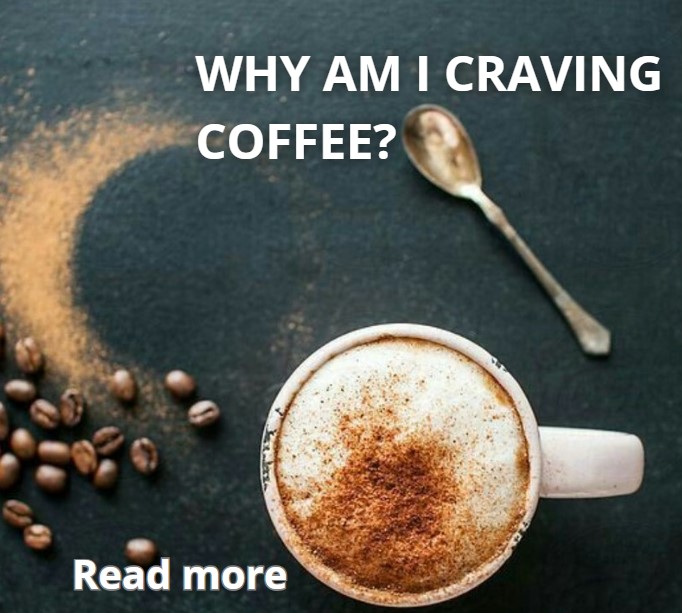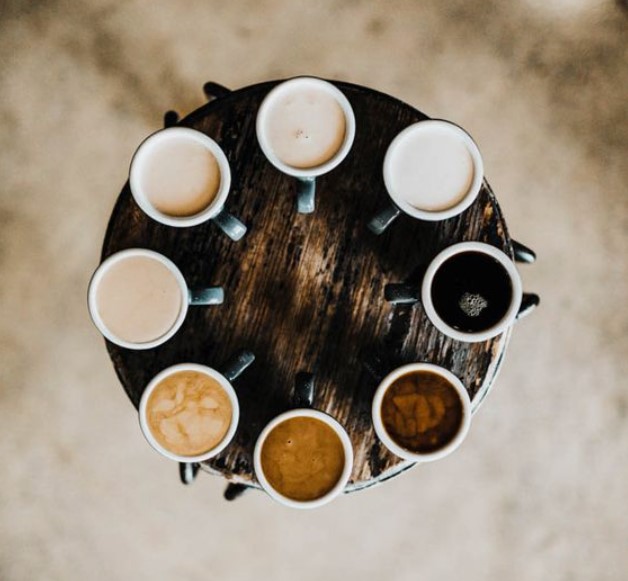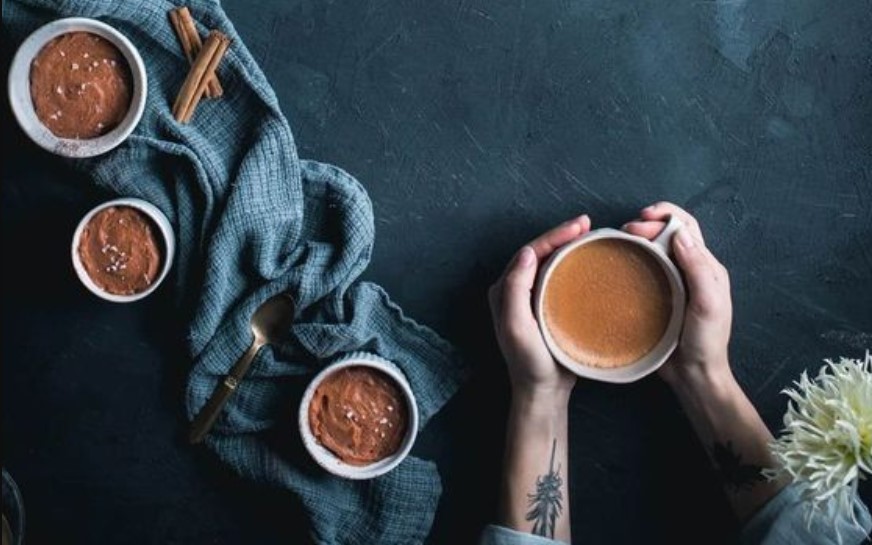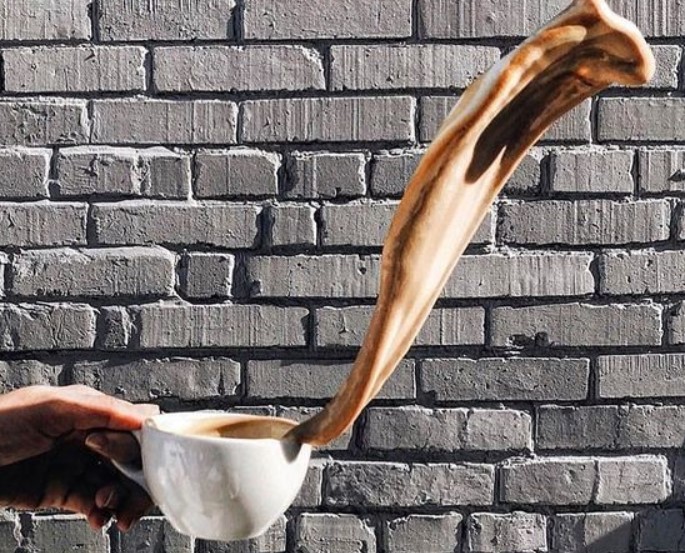
You know that feeling when you wake up, and the first thought that comes to your mind: “I need coffee, now!”? Oh, for me this happens both on weekdays and weekends. Before work, I need energy, and on Saturday and Sunday I do not want to sleep until lunch, but have time to have more. That’s why I find myself needing energy, too. But just recently I began to think Why Am I Craving Coffee at night or in the morning so strong?
Let’s start with the science
I remember how I read an article about how caffeine affects the brain. The dopamine released from a sip of coffee fills me with energy, making me ready to exercise, cook, or clean around the house. But is it so good when I do so much, just drinking coffee? I don’t think so. Without that small cup of coffee, would I just wrap myself in a blanket and watch TV? I don’t want to be dependent on it.
I won’t bore you with scientific terms, but coffee does block drowsiness receptors, making us feel invincible, like Batman, after the first cup.
My mother is a doctor and once, seeing how much coffee I drink, asked me to go and check if I had a magnesium deficiency. And yes, in early spring I really did lack this vitamin, which led me to the coffee machine several times a day. As soon as I added nuts and seeds to my diet as a snack, I noticed that a cup of coffee was no longer drunk so quickly.
Coffee and psychology
For me, coffee isn’t just about staying awake; it’s also a comforting ritual. I love starting my day with a steaming cup while I sit on the porch, watching the world wake up. This little routine has become so ingrained that my brain associates coffee with relaxation and comfort. It’s my daily ritual that signals the start of a new day.
Of course, there is a social aspect. Imagine that you met your friends in a cafe. What immediately seems? If you thought about the glass of cold Prosecco, then let’s postpone it until the evening, and now I’m talking about coffee. The smell of freshly brewed coffee, the sound of espresso machines and a warm atmosphere create positive associations that make many want coffee even more, even if they did not initially plan to drink it.
In addition, for me, coffee is often associated with productivity.This was true when I was at university, when I started my first job, and even when I stayed up late playing a thrilling game. I understood that it was coffee that gave me that energy, so in my kitchen cabinet the variety of coffee exaggerated the amount of useful porridge or vegetables. After all, I knew that only the smell of coffee would make my brain switch to the mode of operation when I had to concentrate.
But let’s not only about work. Imagine foggy weather or rain and slush outside the window. What would you like? Of course, a cup of hot coffee with marshmallow, a blanket and a favorite book, isn’t it? Therefore, coffee is also part of our comfortable life.

Why Am I Craving Coffee: Triggers
What triggers have I noted for myself? Oh, this is very interesting, because they are absolutely opposite. After all, this is both the need for energy for work during periods of fatigue, and the desire to drink a cup of Latte, when the mood is lazy. And especially if a fresh cheesecake is tempting in the refrigerator.
As I noticed, this is not uncommon – many women experience more traction during this time due to hormonal changes and during periods of menstruation. As if our bodies are asking for a little additional help to survive the day.
Interestingly, dehydration can also be a trigger for coffee traction. I noticed that in the days when I did not have enough water, my craving coffee is more intense. But coffee is very tricky in this case. After all, this is a diuretic. And, although he can temporarily quench thirst, he can actually aggravate dehydration, creating a cycle in which you continue to reach for more coffee. Now I am trying to drink a glass of water before coffee, and this had a noticeable meaning.
How can coffee affect my health?
Of course, moderation is important in everything. In moderation, coffee can be beneficial if you don’t have any health concerns. I’ve certainly noticed that I’m more focused after my morning brew.
However, there’s a downside to drinking too much coffee. I learned this the hard way after a particularly stressful week when I relied too heavily on coffee to get through. The result? Sleepless nights and a jittery feeling that wouldn’t go away. It made me realize that while coffee can be a great friend, it’s important not to overdo it.
Excessive coffee consumption can also lead to nutrient depletion, especially of B vitamins and iron. I once experienced this after a month of non-stop coffee drinking, only to find out that I was feeling more fatigued than ever, despite all the caffeine. It turns out, coffee can interfere with the absorption of certain nutrients, which was making me more tired in the long run. That’s when I learned to balance my coffee habit with a healthy diet.
Also, over-reliance on coffee can mask the need for genuine rest. There was a time when I used coffee as a crutch to push through exhaustion. But eventually, I realized that no amount of coffee could replace actual sleep. It was a wake-up call that made me prioritize rest over reaching for another cup.
By the way, have you noticed that the body itself signals to us that it is tired. Another thing is that we do not always notice this, but I have repeatedly seen how my friends lie with a temperature when they work for a long time without days off, closing some important project and simply dreaming of rest. And so, with a temperature, the body gives them this rest. We often do not hear these signals and just make the coffee stronger. But it is still so important to stop and listen to yourself, so as not to miss life in the daily race.

Can a craving for coffee be overcome?
If you’re like me and sometimes feel that your coffee cravings are getting out of hand, there are ways to manage them. How to stop coffee cravings:
- I started by gradually reducing my intake—switching to herbal teas in the afternoon instead of reaching for another coffee.
- I’ve also tried decaffeinated coffee, which still gives me the comfort of my routine without the extra caffeine. It took some time, but I found that my cravings became more manageable, and I didn’t miss that extra cup as much as I thought I would.
- Another effective strategy I found is to make sure I’m eating regular, balanced meals. Skipping meals often led to more intense coffee cravings because my body was looking for a quick energy boost. Once I started paying attention to my diet and eating nutrient-dense foods throughout the day, my coffee cravings naturally decreased.
- I also noticed that staying hydrated played a big role in reducing my cravings. On days when I made sure to drink plenty of water, my need for coffee dropped significantly.
When to Seek Help?
There’s a fine line between enjoying coffee and becoming dependent on it. I realized that when I started feeling irritable if I didn’t get my fix. That’s when I knew it was time to take a step back and reassess my habits. If you find yourself struggling to cut down or experiencing withdrawal symptoms like headaches and fatigue, it might be time to seek professional help. It’s important to listen to your body and make changes before it becomes a bigger issue.

FAQ
Is craving coffee a sign of addiction?
Craving coffee doesn’t necessarily mean you’re addicted, but it can be a sign of dependency, especially if you find it hard to reduce your intake or experience withdrawal symptoms like headaches or irritability when you don’t drink it.
Why do I crave coffee in the morning?
Morning coffee cravings are common due to the body’s natural dip in energy levels after waking up. Caffeine helps to boost alertness by blocking adenosine receptors, making you feel more awake and ready to start the day.
Can stress increase my coffee cravings?
As my mother says, all diseases come from nerves. And of course, stress can trigger you reach for one or even several cups of coffee in a row. But it is important to remember that this effect is temporary, and the influence of two cups of coffee and more per day can cause even more stress on the body than what you try to mask with coffee.
Why do I crave coffee when I’m tired?
When you’re tired, your body produces more adenosine, a chemical that promotes sleepiness. Caffeine blocks adenosine receptors, helping you stay awake, which is why you might crave coffee when feeling fatigued.
Are there healthier alternatives to satisfy my coffee cravings?
Yes, you can try alternatives like herbal teas, decaffeinated coffee, or even water infused with fruits. These can provide a refreshing change while helping to reduce caffeine intake gradually.
What should I do if I can’t control my coffee cravings?
If you find it difficult to control your coffee cravings, it might be helpful to seek professional advice. A healthcare provider can help you develop a plan to reduce your coffee intake and address any underlying factors contributing to your cravings.
Conclusion
Understanding why we crave coffee is the first step in managing those cravings. Whether it’s the comfort, the ritual, or the boost it provides, being aware of the reasons behind our coffee habits can help us make more mindful choices. So, next time you find yourself reaching for that extra cup, take a moment to reflect on why—and remember, moderation is the key to enjoying coffee without letting it control you.